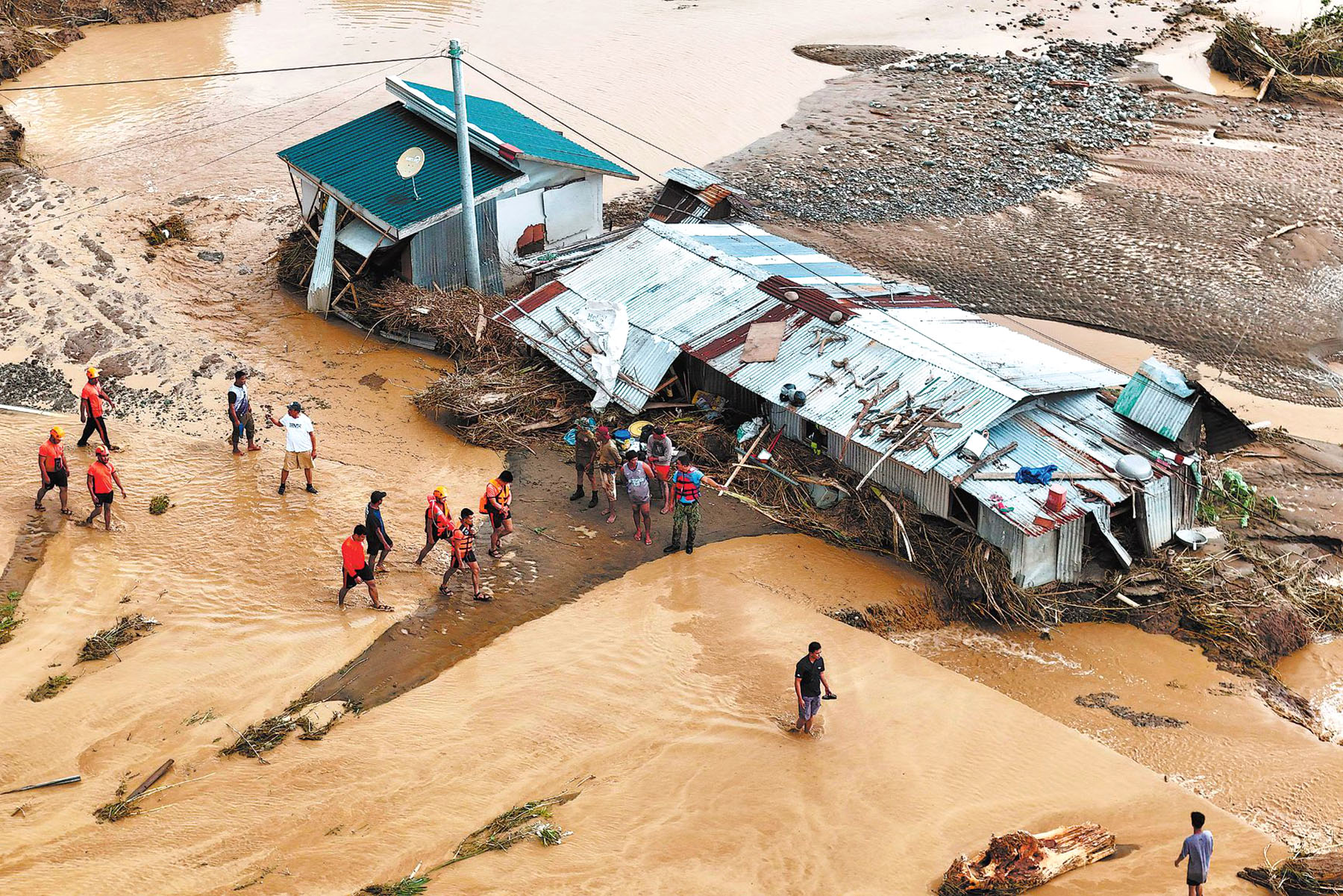Southeast Asia highlights regional vulnerability, calls for more adaptation finance

Editor's note: In this weekly feature China Daily gives voice to Asia and its people. The stories presented come mainly from the Asia News Network (ANN), of which China Daily is among its 20 leading titles.
The morning after 40 hours of travel, Filipina activist Ellenor Bartolome headed to the entrance of the 2025 UN Climate Change Conference, or COP30, in the Amazonian city of Belem on Nov 13, fire in her belly.
On Nov 10, her homeland was battered by the second typhoon in a week. Scientists have deemed such phenomena more likely and more damaging as a result of climate change.
"It gets worse every year, and for every disaster, it is utterly enraging that we are counting hundreds of bodies, hundreds of missing people… while the elite and the corporations are counting money from fossil fuels," the 25-year-old from Manila told a stream of participants entering the venue.
The issue of developing countries' access to funding to prepare for the impacts of climate change, or climate adaptation, was the key focus of the conference this year.
ALSO READ: Monsoon rains pile misery
Countries from the Global South — the developing parts of the world, including Southeast Asia — are pressing developed countries to contribute more climate finance to help them adapt.
International public adaptation finance flows to developing countries totaled $26 billion in 2023, down from $28 billion the previous year, according to a UN report released in October. The same report found that the financing needs in developing countries for adaptation are 12 to 14 times greater than current flows.
At COP30, developing countries advocated for an agreement on a new adaptation financing target, with some proposals calling for it to be tripled from 2022 levels.
Bartolome, a senior executive officer at the Philippine Movement for Climate Justice, told The Straits Times that Southeast Asia's presence at the conference is key because the region is one of the most at risk from climate calamities.
Archipelagic Philippines, for instance, is one of the most vulnerable countries in the world, Bartolome said. "We're here because we recognize the importance of these spaces where civil society organizations must still be present," she said, adding that because fossil fuel often lobbies, and there should be a "counter-narrative".
Typhoons have become the new normal for the nation of islands, costing homes and lives, said Filipina Lidy Nacpil, a veteran who has attended 16 COPs.
"Today, the majority of Filipinos know what climate change is about because they actually experience it," added the fellow protester from the Asian Peoples' Movement on Debt and Development.
The 65-year-old coordinator of the movement, a regional alliance of civil society groups, lamented that the recent typhoons felt like a case of deja vu, having watched her country battle increasingly turbulent storms during at least three COPs.
It was not just civil society representatives calling for more adaptation finance. Researchers, government delegates and investors were doing the same at various events held throughout the day on Nov 13.
Ministerial representatives from Chile, Bangladesh and Nigeria called for investments to strengthen health systems, as they highlighted the devastating impacts of the intensifying climate crisis on human health.
Extreme events
The COP30 presidency's special envoy for Africa, Carlos Lopes, painted a picture of extreme events occurring with a frequency that the continent's regions are struggling to cope with, citing temperatures of 50 C in North Africa and annual floods in East Africa.
Each year, more than half a million lives are lost due to heat, and over 150,000 deaths are linked to wildfire smoke exposure, according to Lancet Countdown executive director Marina Romanello, speaking at the same briefing.
Lancet Countdown, published annually in The Lancet medical journal, tracks the evolving links between climate change and human health.
"Health systems, already stretched and underfunded, are struggling to cope with these growing pressures, and most are still unprepared for what is coming," said the climate change and health researcher.
Current funding is nowhere near sufficient, Romanello added, citing how only 44 percent of countries have factored in the cost of adapting their health systems to climate change.
ALSO READ: Deforestation in S.E. Asia causes more deaths than in other tropical areas
At another Nov 13 dialogue that brought together representatives of financial ministries, researchers and investors, participants argued that budgeting for adaptation is crucial to implementing the climate treaty in the next decade, beyond the talks in Belem.
The panelists, most of whom had observed the ongoing climate negotiations, said raising the commitment to financing adaptation will ultimately benefit business interests, as it results in long-term savings.
Guido Schmidt-Traub, a partner at consultancy Systemiq, said: "It costs 5 to 10 percent more to make that road resilient, so why not just build it resilient from the start? Because refurbishing and rebuilding it later is just vastly more expensive."


